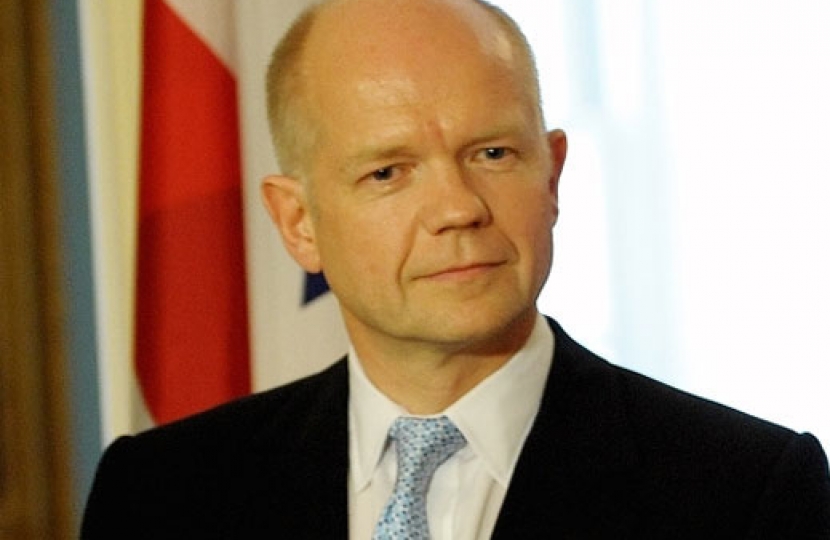
The devastating floods in Pakistan have affected more than 20 million people, untold numbers of whom have had their homes and livelihoods obliterated in this unfolding tragedy. In the first 20 days of the charity appeal to help the victims of the floods, 300,000 British people donated £33 million, alongside the £64 million given by Britain as a nation through the Department for International Development.
This outpouring of public support – faster and more generous than some governments around the world – should make us proud. It has shown that our ability as a nation to help others rests on real goodwill, generosity and compassion.
It also confirms something fundamental about our society's attitude to the suffering of others, whether that distress is caused by natural disaster, state oppression, or conflict. It is not in our character as a nation to stand by while others are in need, or to be unmoved when they are denied the hard-won freedoms and protections that we enjoy in Britain as a result of centuries of striving for individual rights within a democratic society.
It is a sad fact that there are scores of countries in the world where human rights are severely curtailed. Somalia, Burma, the Democratic Republic of Congo and North Korea are just some of the many countries where people endure war, want or political oppression. There is no single country that has the power to transform this situation alone. In the end, strong institutions and the rule of law are the only lasting guarantee of freedoms, and we all know that these things take a long time to build and must be constantly nurtured.
But this does not diminish the centrality of human rights in the core values of our foreign policy. We cannot have a foreign policy without a conscience. Foreign policy is domestic policy written large. The values we live by at home do not stop at our shores. Human rights are not the only issue that informs the making of foreign policy, but they are indivisible from it, not least because the consequences of foreign policy failure are human. When ceasefires break down or unchecked climate change takes hold, ordinary people suffer. Where there is lawlessness, human rights abuses inevitably follow, affecting our security in the UK as well as affronting our common humanity.
In our first 100 days we have brought the energy of a new government to bear on the promotion of human rights. We have enacted in weeks what the previous government failed to do over several years by announcing an inquiry into whether Britain was implicated in the improper treatment of detainees, and publishing the guidance given to intelligence services personnel in the interviewing of detainees held by other countries.
Foreign Office Ministers have also been energetic in meeting human rights groups and NGOs, and in raising human rights. We have, among other things, spoken up for fair elections in Burma, pressed for access for humanitarian aid to Gaza, campaigned against forced marriage and lobbied the Government of Iran over death penalty cases, women's rights and religious freedom.
We want to improve how the Foreign Office reports on human rights worldwide. In addition to an annual report to Parliament, we want to make such information more accessible to the public. British diplomats raise human rights every week on every continent, pressing for the release of political prisoners, urging free and fair elections, rallying other countries to take action in international organisations, and acting as an early warning system alerting us to crises around the world. We will ensure that more of this real-time reporting is available for all to see.
It is no secret that our national resources are under great pressure. But as a Government we are determined not to balance our books on the back of the world's poorest and most vulnerable. We will honour our commitment to spend 0.7 per cent of our national income on overseas aid from 2013, as well as enshrining this in law.
We will continue to raise human rights concerns wherever they arise, whether with our oldest and staunchest allies, authoritarian regimes or emerging democracies. We will use the persistent and painstaking mobilisation of our resources and of our diplomacy to make progress on this core value of UK foreign policy. For the right foreign policy for Britain is one that includes ambition for what we can achieve for others as well as ourselves, that seeks to inspire others with our values and that is resolute in its support for those around the world who are striving to free themselves from poverty or political repression.
See the article today in The Daily Telegraph
